Is it possible to become a morning person?
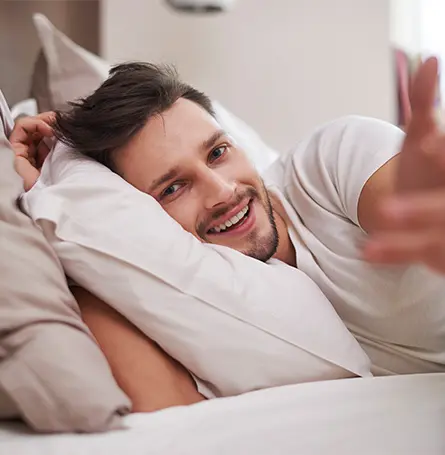
To start things off, let's answer the most crucial question – if you're a night owl, can you turn into a morning person? Unfortunately, the answer is no.
This is because multiple studies have shown that being a morning person isn't a personality trait but rather a physiological phenomenon called a chronotype.
In other words, morning people can have earlier wake times because it's in their biological makeup.
However, it's not the end of the world!
For one, your chronotype can shift with age – which we will discuss in more detail later on. And while you can't change your chronotype, you can influence your circadian rhythm to make waking up early a bit easier.
So, don't give up just yet!
How to make waking up in the morning easier if you're a night owl?
Just because you can't “become a morning person” doesn't mean that every morning needs to feel like a fight for your life. After all, beyond just your genetics, there are plenty of lifestyle habits that can make being an early riser more or less difficult.
And, let's face it, a lot of people more-or-less have to get up early in the morning for either school or work. So, let's go over all of the changes you can make in your life that can help your circadian rhythm get with the times and allow you to have energy in the morning!
Have a consistent sleep schedule
The first, and arguably most important tip we'd like to cover is having a consistent sleep schedule. Humans are creatures of habit and regardless of how much you hate getting up at 7 AM, your body clock will get used to it after a while.
However, and this is going to be a bummer to hear – you must stay consistent! This means that even during the weekends, you can't afford to sleep for an extra three hours. After all, your body doesn't “know” what a weekend is but your circadian rhythm will be thrown for a loop if you keep changing your wake-up times.
Fifteen to thirty minutes of extra sleep during the weekends is fine. But generally, try to stick to a consistent bedtime every day, get at least seven hours of sleep, and avoid napping.
Have a bedtime routine
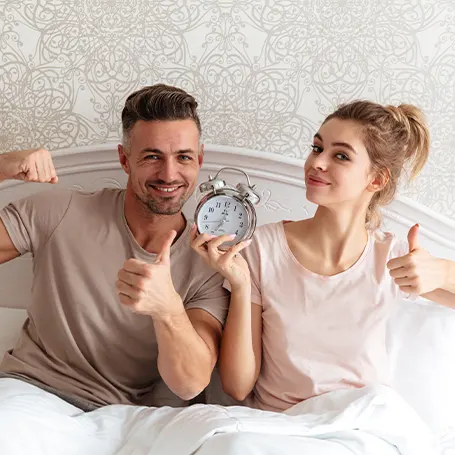
On a similar note to the previous section, having a consistent routine can help you fall asleep earlier and more easily. This once again has to do with your circadian rhythm.
Good habits and consistency are kings in this department.
For example, in a study, children with nighttime disturbances were instructed to form an evening routine that consisted of relaxing activities such as taking a bath, putting on pyjamas, and reading a story. And this did produce results and led to fewer nighttime disturbances and a “better attitude” once their bedtime approached.
So, think of activities you can do every night that allow you to relax. It can be relaxing music, mild yoga, walking your dog, or anything else that tends to calm you down.
You can even make a makeshift relaxing to-do list and see what works best for you!
Have a morning routine
No, we aren't done with the routines! After all, even if you fall asleep early, that's only half the battle! Due to a phenomenon called sleep inertia, you're likely still going to feel sleepy and groggy in the morning. However, just like in the previous example, a solid routine can make this a lot easier.
The best morning routine should incorporate natural light in some way. This is because bright light is one of the key triggers when it comes to our sleep-wake cycle. So, whether your routine is reading a book near the window or going for a brisk walk, make sure the morning light hits your eyes as soon as possible.
If this isn't a possibility, you can also look into getting a SAD lamp, as they're designed to mimic natural sunlight.
Gradually shift your sleep schedule
While it would be ideal if you could start waking up at the peak of down immediately, this can be a slightly longer process. In fact, it can take anywhere from a few days to even a few weeks.
And that's because it's generally not advised to change your bedtime or wake-up time by more than 15 minutes a day. So, if you want to go from falling asleep at 1 AM to 11 PM, it will take a bit of patience.
This is because of all of the things we've already mentioned. Remember people, consistency is the key to forming good habits and results don't come overnight (pun intended)!
So, don't immediately crank your alarm clock to shift your wake-up time by 4 hours. Give it time and your night owl tendencies will self-correct at some point.
As a bonus tip, this is also how you can preemptively protect yourself from jet lag! Just shift your bedtime by 15 minutes until it matches your desired schedule in the new time zone.
How to fall asleep faster?
As you've noticed, all of our tips for becoming a morning person so far are reliant on the fact that you'll go to bed earlier. However, what if you get into bed at the appropriate time but simply can't fall asleep for a few hours?
Well, this is where we need to introduce good sleep hygiene into the mix. As we've said already, going to bed 2-3 hours earlier will take some time getting used to but it is possible. So, here are all of the ways in which you can fall asleep faster and more easily.
Avoid looking at screens in the evening
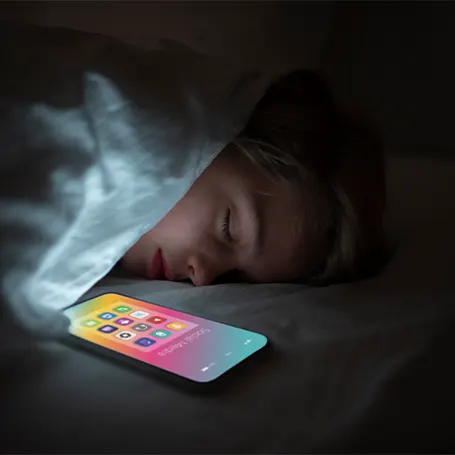
While watching TV or Netflix until you nod off is a staple for many bedtime routines, it can get in the way of having an earlier bedtime. And this is for a few reasons.
For one, on a psychological basis, it might be more tempting to stay awake if you happen to catch a good movie or the episode ends on a cliffhanger and you want to see what happens next. But this is the lesser of two evils if you ask us.
The real issue arises due to how blue light affects our internal body clock. Just like natural light helps us get up in the morning and naturally wake up early, blue light exposure makes us more alert. And when you're trying to fall asleep, being more alert isn't an ideal part of your nightly routine.
So, if you can avoid looking at screens during the evening, do so! And if you can't, try to minimise how much blue light you're being exposed to.
You can do this by setting up the device itself to emanate less blue light or by looking into blue light-blocking glasses (although there are mixed results as to their effectiveness).
Avoid caffeine in the evening
While having a cup of coffee is ideal for raising your energy levels in the morning, it can also cause sleep issues if consumed later on in the day. After all, caffeine directly hampers our sleep hormone (melatonin) from doing its job, and a late-night cup of coffee can throw your sleep cycle out of balance.
Plus, caffeine sticks around for way longer than you'd think! It can take 6 hours just for half of the caffeine in your system to be fully digested. This is why it's generally not advised to have any coffee, soda, or black tea past 4 or 5 PM.
And yes, you hear us right, even tea isn't safe. Aside from herbal teas, most teas have some caffeine, with black tea being especially “energetic”.
Have your meals earlier in the day

Yes, even something as simple as having an earlier dinner can help you fall asleep more easily! And this is for a few reasons.
Number one, as we've mentioned a million times already, your body loves routines. So, if it's used to having a late-night snack, you might find yourself with a grumbling stomach as you're trying to fall asleep.
Secondly, what you eat and drink can actually affect your sleep quality! For example, if you eat really greasy food for dinner, your body will have a tough time falling asleep until it's digested.
This is because breaking down tough food causes your body temperature to rise, which in turn makes falling asleep more difficult.
On the other hand, eating some turkey or having a warm cup of milk can help your body more easily transition into sleep!
So, having a cup of milk before bed is a legitimate bedtime routine in the real world and not just cartoons.
Work out earlier in the day
Having a consistent workout routine is probably the biggest health boost a human can have (second only to quitting smoking). And since good sleep quality is tied to good health, these health benefits will make even the groggiest of night owls fall asleep more quickly.
Plus, if you have a workout be a part of your morning routine, your energy levels will immediately spike. And this will in turn give you that optimistic gleam in your eye at the 8 AM meeting or class that likely made you want to be a morning person in the first place.
However, while working out will always do you good (as long as you don't hurt yourself), we do strongly suggest you do it during the day. This is because getting your body temperature up close to your bedtime can make falling asleep more challenging.
Keep your room cool
Since we mentioned how your body temperature affects sleep, let's talk about it in a bit more detail. The TL;DR explanation is that your body temperature needs to drop for you to fall asleep. After all, besides the absence of light, this is how our body clocks can “tell” when it's nighttime.
So, if make your room a bit cooler as bedtime approaches, your body will naturally produce melatonin and allow you to fall asleep. Plus, if you keep the curtains drawn and have sunlight beaming into your room during the morning, the increase in temperature can wake you up!
Not only that but since this is a lot more natural (and less stressful) than an alarm clock, that groggy feeling won't be as strong and you'll likely feel like a true morning lark!
Keep your room dark
As we've just said, light exposure is an excellent way to wake up and have a better morning. However, when it comes to getting better sleep, being able to stay asleep, and falling asleep more quickly, you want to keep your room dark.
The ideal setup is to have blackout curtains or blackout blinds that will keep your room dark in the evening and then have sunlight hit your face in the morning. If you have a partner who's a morning person, you can ask them to draw the curtains/blinds in the morning.
And if that's not possible, try to sleep in a room where the window faces east or use a SAD lamp to emulate the rising sun.
Talk to your GP about getting sleep medicine
While it might seem odd that we waited this long to mention sleep medicine, it's for a good reason. Namely, sleep medicine can become a dependency and then even an addiction! And the difference between a morning person and a night owl shouldn't be that one can only fall asleep by taking pills.
Of course, if under the supervision of your GP and taken appropriately, there's nothing wrong with taking medication to fall asleep. In some cases, it might even be the best option. However, be honest with your GP and don't solely rely on medication as you'll likely need to make some lifestyle changes to ensure your internal clock remains healthy!
Physical factors that affect your sleep quality
So far we've exclusively focused on lifestyle changes that you can make to tone down your sleep inertia and become an honorary early bird. However, there is one factor that we've overlooked – your actual bed.
It's no secret that you'll fall asleep more quickly on a comfortable mattress than on a wooden floor. So, let's quickly go over your bedding and see whether it's the reason falling asleep is so difficult.
Your mattress
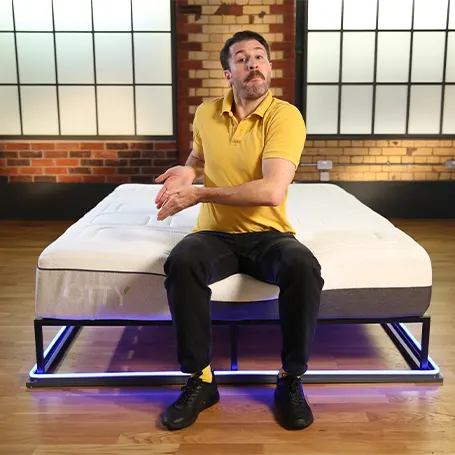
If you're a night owl simply because your mattress feels like a bag of rocks, getting a new one should produce immediate results! And while we can't go into too much detail here (trust us, it's a lot more complicated than you'd think), we'll give you some general outlines to follow.
- Get a softer mattress – If you sleep on your side and/or are on the lighter side, you'll generally want a mattress that's at least a medium firm. Firmer mattresses can cause hip and shoulder pain and thus make falling asleep more difficult. You can see our favourite soft mattresses
- Get a firmer mattress – If you sleep on your stomach and/or are on the heavier side, getting a firm mattress is the way to go. This way your spine can stay properly aligned and you can avoid waking up in the morning feeling like you're 100 years old. You can see our favourite firm mattresses
- Get a better mattress – If your current mattress is over 10 years old and/or you want the be as comfortable as possible, you need a high-quality mattress. You can see our list of the best mattresses
Your pillow
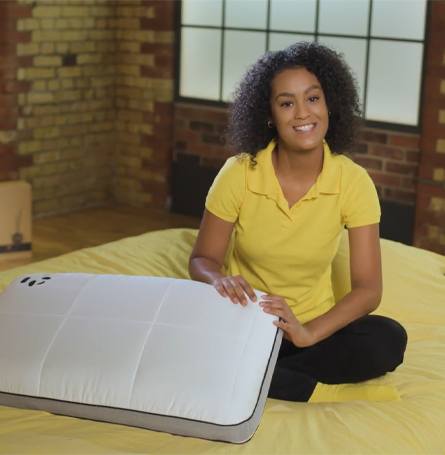
Aside from your mattress, your pillow is second in command if you want to improve sleep. This is especially true if you suffer from neck pain somewhat regularly. On top of that, some pillows can help with issues we've discussed in the previous section.
- If you're a side sleeper – Get a thick, firm pillow. This is so that your neck can stay straight at night. Here is our list of the best pillows for side sleepers.
- If you're a stomach sleeper – Get a pillow that's completely flat. This is so that your head isn't tilted sideways all night long. It's also generally advised to sleep on your back or side if you can. But if you can only sleep on your stomach, check out our list of the best pillows for stomach sleepers.
- If you're a back sleeper – Try to get a pillow that's medium-thick. The most important thing is that your head isn't tilted forward. Check out our list of the best pillows for back sleepers right here.
I used to be an early bird, what happened?
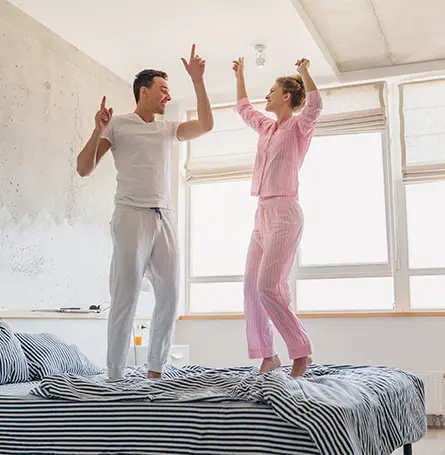
Lastly, we wanted to bring up a very important factor – your chronotype shifts with age. Generally, as you enter puberty or early adolescence, your chronotype will shift towards the evening. This is why night owls are so common among young people!
However, somewhere after your 20s, some people will “phase out” of being night owls and start preferring the morning. But why are we bringing this up?
Well, two main reasons. One, if you're a parent and your children can't seem to go to sleep on time, know that this is pretty common. This doesn't mean that you shouldn't try to instill good sleeping habits in them but don't pull your hair out if they still tend to sleep in.
Secondly, if you're in your teens or your twenties and suddenly can't seem to wake up as early as when you were younger, know that it's normal.
Not only is your chronotype shifting but you also need all the sleep you can get! So, practice good sleep hygiene and try not to stress about it too much.
Conclusion
And that concludes our guide on how to become a morning person! Or at least how to make waking up early less painful for night owls. With all of that being said, we'd like to hear from our night owls in the comments – have these tips helped you fall asleep faster?
And for the morning people – do you practice any of these sleep hygiene practices? Let us know in the comments!



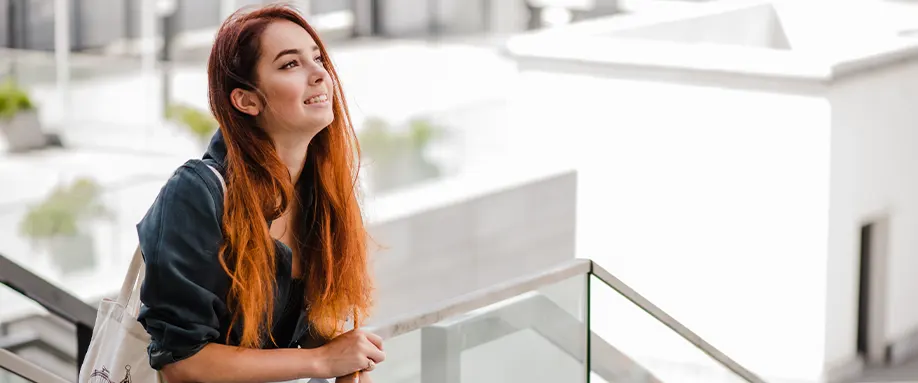











There are no comments yet
"*" indicates required fields